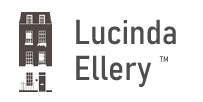Nutrition has always been linked to healthy hair and normal growth, which is why a poor diet can negatively affect it. If your diet is lacking in certain nutrients, vitamins and minerals, you could potentially experience some degree of hair loss.
One of these important nutrients is iron, which is needed for making red blood cells, carrying oxygen from the lungs to the tissues via haemoglobin and helping with enzyme reactions. If you have too little iron in your body, you may suffer from iron deficiency anaemia. This can happen due to:
• Chronic bleeding
• Malabsorption syndromes, or a substance interfering with iron absorption
• Blood donation
• Inadequate intake – this can occur if you don’t get enough iron in your diet.
Hair loss
Amongst other symptoms including fatigue, irritability and weakness, people with iron deficiency anaemia often experience hair loss. Along with grooved or brittle nails, this is an outward sign of the deficiency, one which tends to cause the most distress for sufferers.
Diagnosis and treatment
In order to treat your iron deficiency and in turn, your hair loss, you need to first see your GP for a formal diagnosis. You are then likely to be advised to take iron diet supplements or increase the amount of iron-rich foods you eat (i.e. red meats, leafy vegetables, poultry etc).
